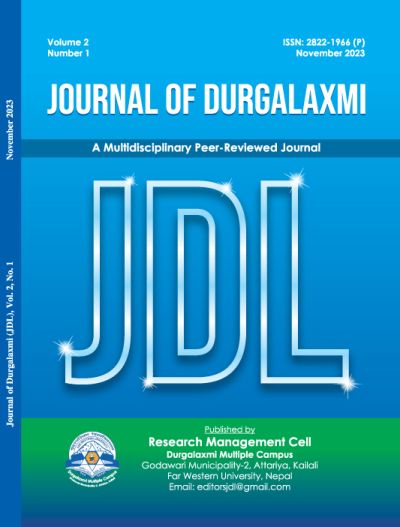Social Media and Social Ills: Overcoming the Challenges in the Contemporary Era
DOI:
https://doi.org/10.3126/jdl.v2i1.65392Keywords:
social ills, social media, cyber bullying, technology, medical specialists, digital eraAbstract
Social media has become an integral part of modern society, offering unprecedented opportunities for communication, education, entertainment, and activism. However, social media also poses significant challenges and risks for individuals and communities, such as cyber bullying, misinformation, privacy predation, mental depression, social isolation, and addiction. Especially, this paper reviews the situations of the positive and negative effects of social media on various aspects of human well-being for the children and teens age group, such as physical and mental health, social capital, personal privacy, civic engagement, and democratic participation. It also discusses the potential strategies and interventions to overcome the challenges and enhance the benefits of social media in the contemporary era. To overcome these challenges, the article proposes solutions such as enhancing content moderation procedures, promoting digital and medical literacy and critical thinking among users, implementing transparent and accountable procedures, and fostering collaboration between platforms, policymakers, and civil society organizations. These include promoting digital literacy, fostering online civility, regulating harmful content, supporting vulnerable users, and encouraging positive online behaviors. The paper concludes by highlighting the need for more interdisciplinary and collaborative research on the complex and dynamic relationship between social media and social ills.
Downloads
Downloads
Published
How to Cite
Issue
Section
License
Copyright (c) 2023 The Author(s)

This work is licensed under a Creative Commons Attribution-NonCommercial 4.0 International License.
CC BY-NC: This license allows reusers to distribute, remix, adapt, and build upon the material in any medium or format for noncommercial purposes only, and only so long as attribution is given to the creator.




